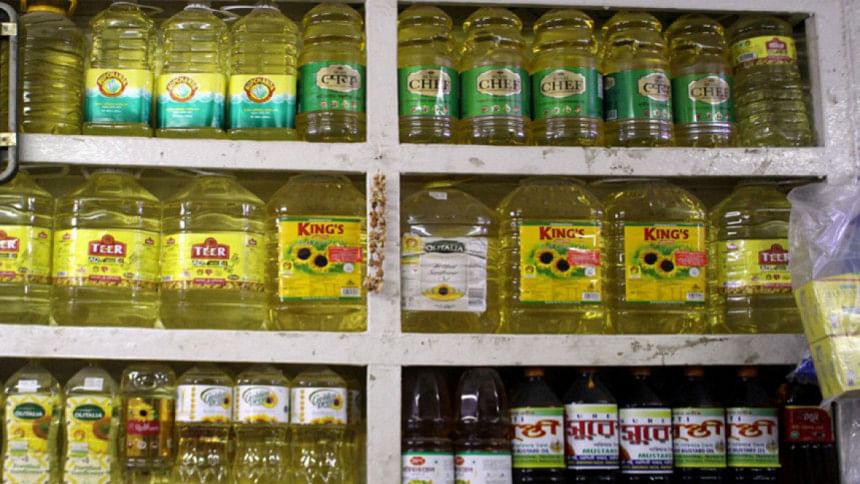Edible oil crisis: Alternatives aplenty

Locally produced oilseeds like mustard, corn, sunflower, coconut, and sesame (teel) can be some great alternatives to soybean and palm oil, said Prof Nazma Shaheen of the Institute of Nutrition and Food Science at Dhaka University.
Several other food items like nuts can also meet the nutritional demand for vegetable oil fat, she said.
Appropriate government initiatives to increase production of these crops can lead to self-sufficiency in edible oil production, taking the edge off import-dependency, she noted.
In that case, the government should promote farmers and local industries to boost production of these alternatives and campaign for changing people's dietary habits.
"Soybean oil is a good source of unsaturated fat that we need daily. But for that we don't need to consume soybean oil, not necessarily. Other vegetable oils are just as fine," she told The Daily Star on Monday.
Oil-free food recipes can also be a good option that can reduce the demand for edible oil.
"Many countries have water-based cooking practices. People in those countries meet their need for fat from other food," Prof Nazma said.
Locally grown oilseeds have similar nutritional value for human health, Nazma said, referring to the time when people used to consume mustard oil instead of soybean oil.
Daily consumption of vegetable oil is crucial for good health, as it is one of the three essential macromolecules -- carbohydrate, protein and fat.
According to WHO-FAO guidelines, 55-65 percent of our energy should come from carbohydrates, 15-20 percent from protein, and 30-35 percent from fat.
This rate is 68.7 percent, 10.9 percent, and 18.1 percent among Bangladeshis, according to the 2017-2018 report by Dhaka University titled Nutrient Density and Affordability of Habitual and Desirable Diets in Bangladesh.
"This study found low rates of nuts and oilseeds consumption among our population. So, there is a need for formulating policies to increase production of nuts and oilseeds," Prof Nazma said.

 For all latest news, follow The Daily Star's Google News channel.
For all latest news, follow The Daily Star's Google News channel. 








Comments